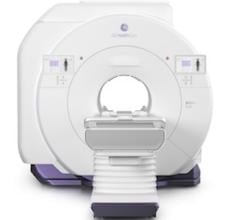It’s an age-old quest, amped by millisecond response times and 4G technology. Patients want satisfaction. And they want it now … from their doctors; from their clinics; from their hospitals.
The information age has spoiled them with facts about pretty much anything — delivered at the speed of light. No wonder quick and accurate answers about the
most important thing in peoples’ lives — their health — are expected. Ironically, the means to this end can be its undoing.
Thirty-six percent of respondents to a 2013 HIMSS leadership survey of health IT professionals cited securing information on mobile devices as their top security, up from six percent the year before. And for good reason. Nineteen percent of respondents — nearly one out of five — said their hospitals had some type of security breach in the last 12 months.
The purveyors of information technology are struggling daily with these challenges. And moguls contend progress is being made. But how much? Last year, 22 percent of respondents reported security breaches — just three percent fewer than 2013.
As American consumers transition from dumbphones to smartphones, healthcare providers are propelled into the professional use of these devices, getting more information, faster … while becoming ever more dependent on them.
Little wonder then, rooted as we are in this quagmire created by noble intentions, that the drive toward patient satisfaction is taking on a multidimensional bent. Faster is better, but it’s not enough.
At the Cleveland Clinic, techs hand patients flowcharts telling them what to expect. “You’re having a nuclear medicine HIDA or gastric scan today!” cries one. Videos on the clinic’s intranet offer “you are there” introductions. A subvocal chant — “We’re all Caregivers” — permeates the clinic. Janitors open doors for patients. Nurses walk families to their loved ones’ rooms.
It’s all part of the “Cleveland Clinic Experience Employee Engagement.” And it’s spreading. Similar programs are taking shape at the University of Utah Health Care, Children’s Hospital of Illinois, and the Medical Center of South Arkansas.
Medicine has long been viewed as a healing machine, cold and inhuman. Data collection and processing have made medical care more precise, but they have distracted caregivers. Screen time jockeys for face time. Numbers are crunched; reports generated.
Patients are fed up. Their appetite for personalized care has been whetted by commercials that sell drugs and medical services. Grocery, department and hardware stores provide courteous, friendly service. Why not hospitals and clinics? But when they do, is it evidence of a fundamental shift toward serving the patient or just lip service?
The trappings of a friendlier healthcare are beguiling, just as the faster delivery of care is reassuring. These would appear to be steps in the right direction. But the technology that conveys answers is vulnerable to abuse, just as it draws the attention of caregivers from patients.
Jagger got it right, but it wasn’t his intent. A double negative is what he said, but it wasn’t what he meant.
I can’t get no … I can’t get no
I can’t get no … satisfaction
No satisfaction, no satisfaction, no satisfaction
I can’t get no …
Greg Freiherr has reported on developments in radiology since 1983. He runs the consulting service, The Freiherr Group. Read more of his views on his blog at www.itnonline.com.


 February 20, 2026
February 20, 2026 









